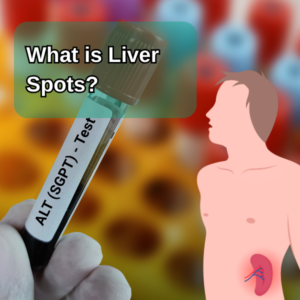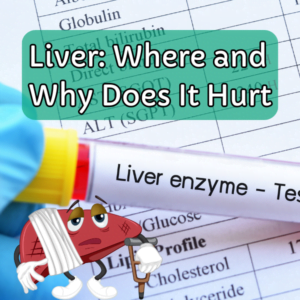+90 533 813 89 77
info@bookingforhealth.com

“Life After Liver Transplantation” Facts
Liver transplantation is a life-saving procedure that can improve the quality of life for people with serious liver problems. If a patient is considering a liver transplant, it’s natural to have questions about what to expect live after the surgery.
Immediately following the surgery, the patients are taken to the intensive care unit (ICU) for close monitoring. They will be given pain medication to help manage any discomfort they may feel. He/she is also given fluids and medications to help their body function properly and to reduce the risk of infection.
After a few days in the intensive care unit, the patient will be moved to a regular hospital room. He/she will continue to receive medications and other treatment as needed, and he/she will also begin physical therapy to help him/her regain the strength and mobility.
Most patient who have a liver transplant spend about two weeks in the hospital, although this can vary depending on individual circumstances. After the patients are discharged from the hospital, they will need to continue taking medications and seeing the healthcare team regularly to ensure that their transplanted liver is functioning properly.
Possible Complications After Liver Transplant
Liver transplantation is a complex procedure that carries a number of risks and complications. Some of the potential complications of the operation include:
- There is a risk of bleeding during and after the surgery, which may require additional treatment.
- Transplanted livers are vulnerable to infection, which can be serious and may require treatment with antibiotics.
- The body’s immune system may recognize the transplanted liver as foreign and try to reject it. This can be treated with medications to suppress the immune system.
- In some cases, the transplanted liver may not function properly, which can be life-threatening.
- The medications used to prevent rejection of the transplanted liver can have side effects, such as an increased risk of infection, high blood pressure, and kidney damage.
It’s important to discuss the potential risks and complications of liver transplantation with the staff before the procedure. They can provide more information about the specific risks in the case and help the patients make an informed decision about whether liver transplantation is the right treatment for them.

Considerations After Liver Transplantation
After a liver transplant, it’s important to follow the doctor’s instructions and take the medications as directed to ensure the best possible outcome. The patients may need to make some lifestyle changes to support the health of the transplanted liver, such as avoiding alcohol and certain medications.
In general, it’s important to take things slowly and gradually increase the activity level as recover from the surgery. The patients may need to rest for the first few weeks after the transplant and avoid heavy lifting or strenuous activity. The staff provides specific guidelines for when the patients can return to their normal activities.
It’s also important to pay attention to overall health and well-being after a liver transplant. This may include eating a healthy diet, getting regular exercise, and managing any other medical conditions the patients may have. By taking good care of themself, they can help to ensure the long-term success of their liver transplant.
It’s normal to have concerns about how a liver transplant may affect the sex life. The patients should talk to the medical staff about any issues they have and follow their recommendations.
Long-term Outlook
The long-term outlook after liver transplantation is generally very good. Most people who have a successful liver transplant experience an improvement in their quality of life and are able to return to their normal activities. However, it’s important to follow the healthcare team’s instructions and take the medications as directed to reduce the risk of complications.
There is a small risk that the transplanted liver may be rejected by the body. Signs of rejection may include fever, abdominal pain, and jaundice. If the patient experiences any of these symptoms, it’s important to contact the specialist right away.
Life after liver transplantation can be challenging at times, but with proper care and support, the patients can enjoy a good quality of life. Booking for Health’s staff are here to support and ensure that the patients have the best possible outcome and period after their liver transplant.
Life After Liver Transplant: Embracing a Healthy and Fulfilling Future
Liver transplant represents a ray of hope for those battling life-threatening liver diseases. After this crucial procedure, taking the right steps to embrace a healthy and active life becomes paramount. Post-liver transplant, there are essential factors to consider in order to achieve a better state of health and well-being.
1. Collaborate with Your Doctor: Following your doctor’s advice during the post-transplant period is crucial. Adhering to regular check-ups and taking prescribed medications as directed will aid your body’s successful adaptation to the transplant.
2. Strengthen Your Immune System: Your immune system may become sensitive after a liver transplant. Strengthen your resistance against infections by avoiding crowded places and contact with sick individuals. Additionally, keeping up with your vaccination schedule will support your immune system.
3. Balanced Nutrition: Maintaining a healthy eating pattern is vital for post-transplant health. Consuming low-fat and high-fiber foods can support the optimal functioning of your new liver. Furthermore, abstaining from alcohol consumption will contribute to safeguarding your body.
4. Regular Exercise: Engaging in physical activity strengthens your body and enhances its endurance. Start with low-impact exercises such as walking and gradually progress to more intense activities. Exercise also helps reduce stress and improves your overall mood.
5. Manage Stress and Emotional Well-being: Coping with stress is essential after a liver transplant. Taking care of your emotional health is an integral part of a healthy life. Staying connected with supportive friends and family can be beneficial during this process.
6. Regular Check-ups: Scheduling regular doctor visits after a liver transplant is crucial to prevent potential complications and monitor your health. Early detection of any issues can increase the chances of successful treatment.
Liver transplant signifies a new beginning. Embrace this opportunity to lead a healthy and fulfilling life by maintaining regular follow-ups, adopting a healthy diet, staying active, and nurturing your emotional well-being. Take care of yourself and relish the joys of this fresh start!



